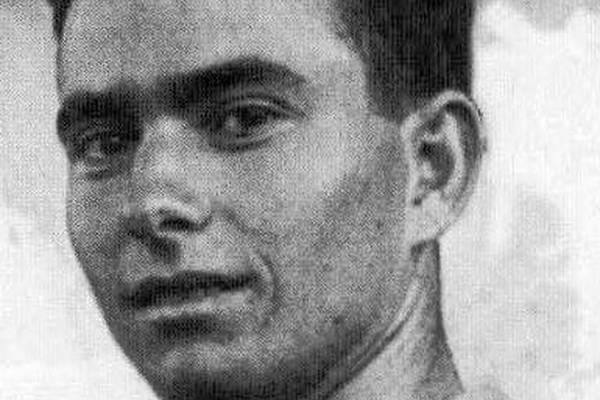Psalm 144, “Blessed is the Lord, my Rock, Who trains my hands for battle, my fingers for war,” was read at Lehi fighter David Spitzer’s funeral.
By TPS
David Spitzer witnessed it all – he was a member of the Lehi underground and fought the British occupation before the establishment of the State of Israel in 1948, and accompanied the young country through its next seven decades until he passed away on Saturday, at the age of 92.
David, the son of Pinchas and Rachel, was born in Jerusalem in 1930. His great-grandfather immigrated to Israel with his wife and seven children in 1917 and settled in Jerusalem.
As a baby, David’s parents were forced to leave Jerusalem and move to Petah Tikva, where his mother’s parents, one of the city’s founders, lived. When he was three years old, his father died, and his paternal grandfather adopted them into his family of 11.
While studying at a yeshiva in Tel Aviv, he joined the Hasmonean Alliance, a national-religious movement, where he heard lectures about Zionism and went through basic training.
In the summer of 1945, at the age of 14, he joined the Lehi underground. Acronym for Lohamei Herut Israel – Fighters for the Freedom of Israel, the Lehi was a Zionist paramilitary organization founded by Avraham (“Yair”) Stern and was the smallest of the paramilitary organizations operating in British-mandate Palestine.
David was accepted to Lehi by an admissions committee in a dark public shelter, without a swearing-in ceremony, without a Bible, a flag, or a gun, as was the custom in the Etzel underground, and undertook to fight for the establishment of a Jewish state and the expulsion of “foreign rulers,” the British.
Codenamed “Yigal,” David engaged mostly in posting public notices from the Lehi on street walls, and if caught, could have faced severe punishment.
To be on the streets at three in the morning for the leaflet postings, he would sleep in a public park, and after posting the notices, would go to school in the morning, as if he had slept all night at home.
Due to the economic situation at home, and because of his membership in the underground, he was forced to drop out of school and return to Petah Tikva, where he was responsible for posting notices and recruiting other members for the movement.
Unknown Soldiers
During a military curfew, when transportation was restricted, they walked the long distance to Tel Aviv and back, bypassing the army checkpoints, and all the leaflets they were given were posted on the main streets.
He also participated in a weapons course in Ra’anana and a field course in Zichron Yaacov.
At the age of 17 and a half, he enlisted in the IDF. After his discharge, he became a teacher and completed his master’s degree at the Hebrew University of Jerusalem and Bar-Ilan University.
He wrote the book “The Hebrew Calendar”, which discusses the calendar and the natural phenomena associated with it.
In 1953, he married Tamar Zafran. They had four children, Rachel, Nurit, Pinchas and Shlomo. The boys served as officers in the IDF.
At David’s request, chapter 144 in Psalms — “Blessed is the Lord, my Rock, Who trains my hands for battle, my fingers for war” — was read at his funeral on Saturday night, followed by the singing of the Lehi anthem “Unknown Soldiers,” written by Avraham Stern in 1932.
He was survived by many grandchildren and 28 great-grandchildren.
